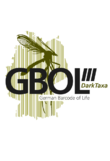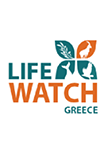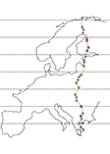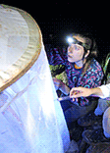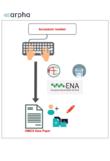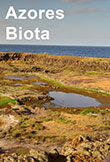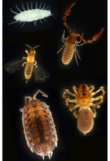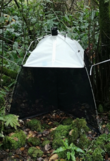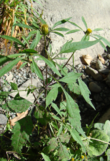Topical collection editors
Topical collection information
The German Barcode of Life initiative (GBOL) aims at creating a DNA barcode library of German organisms. The third phase, "GBOL III: Dark Taxa", focuses on little known or unknown groups of insects in Germany, in particular Diptera and parasitoid Hymenoptera. GBOL III: Dark Taxa is a joint project with partners from three major German natural history institutions in Bonn (Zoologisches Forschungsmuseum Alexander Koenig), Munich (SNSB–Zoologische Staatssammlung München) and Stuttgart (Staatliches Museum für Naturkunde Stuttgart). Further partners are the University of Würzburg and the Entomological Society Krefeld. Starting from July 2020, 12 PhD students are tackling the taxonomy of selected groups of poorly known Diptera and parasitoid Hymenoptera using an integrative taxonomic approach that that builds on DNA barcoding and morphology but employs also other methods. Further work packages include employing HTS techniques to estimate the role of cryptic parasitoids during outbreaks of pest species, establishing a platform for using OTU based data and developing pipelines for poor-quality samples and taxonomics approaches. The project is supported by the German Federal Ministry of Education and Research (BMBF, grant ID: 01LI1901). For additional information see https://bolgermany.de/home/gbol3/.
Select this topical collection at the end of the submission process.
Topical collection "LifeWatchGreece: Research infrastructure (ESFRI) for biodiversity data and data observatories"
Topical collection editors
Topical collection information
LifeWatchGreece Special Collection highlights the key contributions to the large-scale European LifeWatch Research Infrastructure, whose ultimate goal is to model Earth’s biodiversity based on large-scale data, to build a vast network of partners, and to liaise with other high-quality and viable research infrastructures. The present series of papers effectively communicates the project’s outcomes, while opening up to the scientific community, the broader domain of biodiversity management and potential collaborators.
Select this topical collection at the end of the submission process.
Topical collection editors
Topical collection information
The aim of this thematic collection is to collate publications, related to reintroduction or restocking of animal and plant species of conservation importance worldwide, including mostly the categories “Research Article”, „Data Paper” and “Species Conservation Profiles”. The collection was initiated after the “International Scientific Conference on Restoration of Conservation-Reliant Species and Habitats” was held in 2020 in the Faculty of biology of Sofia University, but aims to enlarge with similar researches, conducted worldwide.
Select this topical collection at the end of the submission process.
Topical collection information
Select this topical collection at the end of the submission process.
Topical collection editors
Topical collection information
This Collection of the BDJ will report original results from recent biodiversity recording and survey work undertaken in Cuc Phuong National Park, northern Vietnam, under the framework of the VIETBIO project. The issue will consists of a “main” cover paper characterizing the study area and general project approach and activities, followed by individual papers for separate higher taxa as studied during the project, and some concluding summary and outlook. The main purpose is to make primary biodiversity records openly available including several new and interesting findings for this biodiversity-rich conservation area. All individual (taxonomic) contributions with their respective primary records are expected to provide useful baselines for further taxonomic, phylogenetic, ecological, and conservation-related studies on the respective taxa, and thus will be maintained as separate datasets including separate GUIDs also for further updating.
VIETBIO ["Innovative approaches to biodiversity discovery and characterization in Vietnam"] is a bilateral German-Vietnamese research and capacity building project focused on the development and transfer of new methods and technology towards an integrated biodiversity discovery and monitoring system for Vietnam. Dedicated field training and testing of innovative methodologies was undertaken in Cuc Phuong National Park as part of and with support from the project, which led to the new biodiversity data and records to be made available in this issue.
VIETBIO is a collaboration between the Museum für Naturkunde Berlin – Leibniz Institute for Evolution and Biodiversity Science (MfN), the Botanical Garden and Botanical Museum, Free University of Berlin (BGBM), and the Vietnam National Museum of Nature (VNMN), the Institute of Ecology and Biological Resources (IEBR), the Southern Institute of Ecology (SIE), as well as the Institute of Tropical Biology (ITB), which all institutions under the Vietnam Academy of Science and Technology (VAST).
The project is supported by the German Federal Ministry of Education and Research (BMBF) since 2017 (grant ID: 01 DP17052).
More information you can find on our website: https://bioseasia.org/vietbio.
Select this topical collection at the end of the submission process.
Topical collection editors
Topical collection information
The Special issue “Antarctic and Southern Ocean biodiversity” aims to celebrate the wide biodiversity of the Antarctic and Sub Antarctic region in the terrestrial and marine realms.
The (sub)Antarctic and Southern Ocean are host to a unique biodiversity. Due to the remoteness and harsh environment this biodiversity often remains poorly described despite similar treats as the rest of the globe.
The SCAR Antarctic Biodiversity Portal is a community effort that supports the publication of Biodiversity data in accordance with the FAIR Principles (Findable, Accessible, Interoperable, Reusable) and the provisions of the Antarctic treaty System (scientific observations and results from Antarctica shall be exchanged and made freely available).
Select this topical collection at the end of the submission process.
Topical collection editors
Topical collection information
The aim of the collection is to support the open publication of DNA barcoding data of the Bulgarian biota. The articles would cover a range of approaches including:
(I) publishing of reference collections for specific taxonomic groups of animals, plants, fungi, and unicellular organisms from particular locations and habitats, or across large geographical regions in Bulgaria;
(II) application of new and innovative methods for molecular research, which are showcased by case studies in Bulgaria.
A mandatory requirement for publication is that all data are made publicly available in the Barcode of Life Data System or GenBank for high-throughput sequencing data. In addition, manuscripts will be evaluated on the basis of their overall quality and the volume of data submitted. Larger datasets and highly collaborative initiatives across several teams will be considered with priority. The first 5 manuscripts submitted to the collection will be published free of charge, if accepted, while all others will benefit from a 15% discount. More details about the submission process can be found here.
Select this topical collection at the end of the submission process.
Topical collection information
Select this topical collection at the end of the submission process.
Topical collection editors
Topical collection information
Omics experiments are generating large quantities of data at an ever-increasing rate due to the constantly evolving technologies in the field of biology and environmental sciences. Commonly, omics datasets are deposited into public thematic repositories, such as the International Nucleotide Sequence Database Collaboration (INSDC) databases European Nucleotide Archive (ENA), GenBank and the DNA Data Bank of Japan (DDBJ), from where they are openly accessible. Datasets can also be described and published as data papers to receive additional visibility and citation credit as any other journal article.
To facilitate and incentivise extended high quality metadata descriptions and scholarly publication of omics data, Pensoft has launched a new type of publication - OMICS Data Paper - in the Biodiversity Data Journal (BDJ). Authors are invited to describe their omic datasets by using the novel streamlined workflow for creating a manuscript at a click of a button from metadata deposited in ENA. Imported metadata will be automatically converted into a manuscript draft in the Arpha Writing Tool (AWT), where authors can edit and amend it with additional information and submit it for peer review and publication in BDJ.
Alternatively, an omics data paper manuscript can be created directly in the AWT from where the data paper can be linked to any omics dataset, deposited in repositories other than ENA.
Select this topical collection at the end of the submission process.
Topical collection editors
Topical collection information
Azores is an isolate volcanic archipelago located in the Atlantic which belongs to the Macaronesia biogeographical region and is among the richest regions concerning fungi, plant and animal diversity in Europe. Currently the total number of terrestrial taxa (species and subspecies) in the Azores is estimated of about 6,164. The total number of terrestrial endemic species and/or subspecies from the Azores is about 452 (411 species). Concerning the marine organisms, the listed the most updated list from 2010a, listed bout 1,883 taxa belonging to 16 Phyla.
The aim of this thematic collection is to collate all the publications dealing with the taxonomic diversity of Azorean terrestrial and marine biota including mostly the categories “Research Article”, “Taxonomic Paper” and “Data Paper”, but also “Alien Species Profiles” and “Species Conservation Profiles”
Select this topical collection at the end of the submission process.
Topical collection editors
Topical collection information
The Italian National Recovery and Plan supports the creation of five National Centers dedicated to frontier research related to technological areas consistent with the priorities of the European research agenda and with the contents of the National Research Plan 2021-2027. One of these is the National Biodiversity Future Center (NBFC).
The Vision of NBFC is to promote the sustainable management of Italian biodiversity in order to improve the planet’s health and return beneficial effects, essential for all people. The general mission of the Consortium is to create an extended national network of universities, research centers, associations, and other private and societal stakeholders to take effective and immediate action to halt the loss of biodiversity and the impairment of its delivered ecosystem services while enhancing a sustainable use of biodiversity-derived resources and new job opportunities. In concrete terms, the NBFC aims at addressing interdisciplinary and frontier research and innovation activities devoted to the monitoring, conservation, restoration and valorization of Italian biodiversity.
In the context of the research action promoted by the NBFC, this topical collection aims to favor the production and sharing of knowledge of the extraordinary biodiversity of arthropods present on the Italian territory. The collection welcomes contributions presenting recent advances in the taxonomy, faunistics and ecology of any group of both terrestrial and aquatic arthropods.
All manuscripts submitted to this collection after 12/03/2024 are subject to a flat-rate Article Processing Charges (APC) of 900 EUR. No additional discounts are applicable.
Select this topical collection at the end of the submission process.
Topical collection editors
Topical collection information
This thematic collection aims to collate all publications dealing with cross-taxon and cross-ecosystem biodiversity and ecosystem functioning data at the plot scale worldwide, including biodiversity survey data (available in Darwin Core format), trait sampling, eDNA integration, and remote-sensing link-ups. The following formats will be accepted: “Research Article,” “Taxonomic Paper,” and “Data Paper.”
A mandatory requirement for publication is that all data are made publicly available in GBIF, in PENSOFT BDJ platform or other repositories.
Select this topical collection at the end of the submission process.
Topical collection editors
Topical collection information
Select this topical collection at the end of the submission process.
